Overview Link to this section

We each develop at our own pace, so it's impossible to tell exactly when a particular student will reach a specific milestone or learn a given skill. The developmental milestones below will give you a general idea of the changes you can expect as each ten and eleven-year-old gets older, but don't be alarmed as each student takes a slightly different course. Honor where they are and support them as they develop.
Physical Development
-
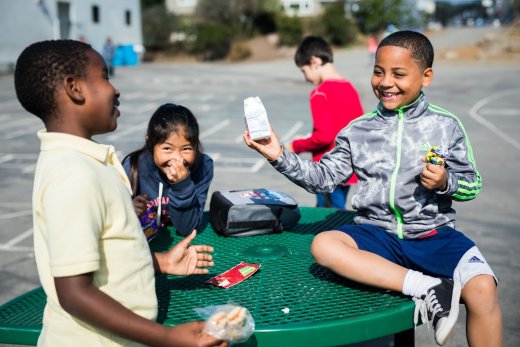
- Need a great deal of outdoor time with physical activity and challenge for large muscles; without adequate exercise, energy may spill over into acting out in the classroom
- Often write more sloppily than at nine because they are in a hurry
- As control of small muscles improves, they continue to enjoy precision tasks such as tracing, copying, making maps, and drawing cartoons
- Ready to start using tools such as compasses, protractors, rulers, and templates
- Frequent snacks and rest periods benefit rapidly growing bodies
Social & Emotional Development
-

- Quick to anger and to forgive
- Usually truthful; developing a more mature sense of right and wrong; able to learn peer mediation or problem-solving
- Highly sensitive to and able to resolve friendship and fairness issues
- Basically cooperative and flexible; do well with group activities and games, collaborative learning, and building a sense of whole-class cohesion
- Benefit from class problem-solving meetings, committee work to plan a field trip, and conducting school surveys
- Eager to reach out to others, such as through community service or tutoring younger children
- Appreciate being noticed and rewarded for their efforts
Communication & Language
-
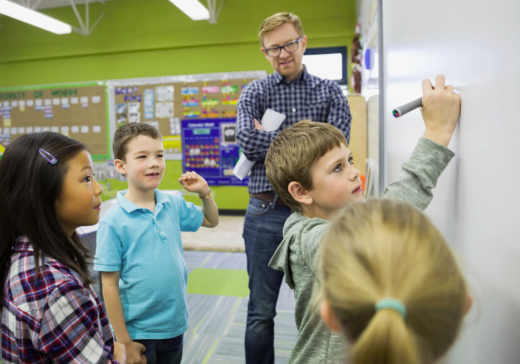
- Read voraciously; important that their daily schedule has as much time for independent reading as for homework
Cognitive Development
-
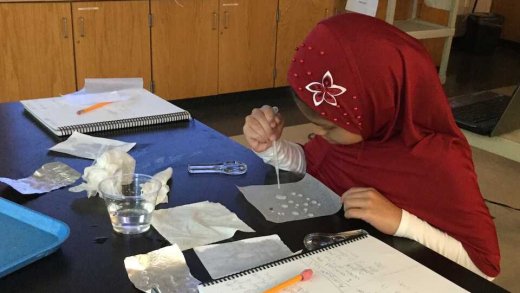
- Increasingly able to think abstractly
- Take great pleasure in collecting, classifying, and organizing
- Can concentrate for longer periods
- Take pride in schoolwork; pay close attention to form, structure, directions, and organization
- Usually conscientious with homework
- Very eager to learn
- Enjoy rules and logic; good at solving problems
- Can pay attention to spelling, dictation, and penmanship simultaneously, but work may be somewhat sloppy as they learn to integrate these skills
- Enjoy choral reading, singing, poetry, and plays
Reading, Writing, & Across The Curriculum
Reading - Provide opportunities for children this age to:
-

- Read trade books centered on themes
- Read independently and indulge their desire to devour one book after another; read more and do fewer book projects
- Enjoy comic books and appropriate graphic novels
Writing - Expect from children this age:
- Writing: Readiness to write lengthy stories, longer poems, first research papers, and pieces about famous people -- usually filled with light and descriptive language; more frequent use of humor; more use of dialogue; realistic descriptions of interactions between characters
- Spelling: Memorizing the spelling of difficult words, and using the words, properly spelled, in day-to-day writing
- Writing Themes: Friends, friends, and more friends in many adventures; time travel; letters to request information; notes to friends; reports
Across the Curriculum - Provide opportunities for children this age to:
- Get plenty of exercise
- Do precision tasks, such as drawing maps and using protractors
- Take part in clubs, activities, group games, and team sports
- Participate in class problem-solving meetings and take part in planning for whole-class events
- Reach out to others in the community through service projects or assisting younger grades
- Memorize, classify, organize, and solve logic problems
Eleven
Link to this section
Physical Development
-
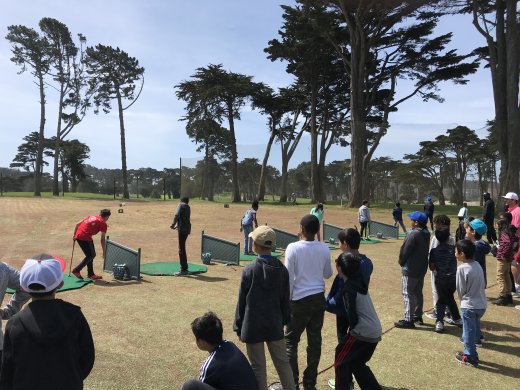
- Need lots of food and physical activity, and much more sleep than they usually get
- Girls(alternative language) may experience an early adolescent growth spurt and sexual maturation; some boys (alternative language) begin rapidly growing taller
- Although many still struggle with clumsiness, motor skills (such as throwing, catching, and kicking) begin to improve; like to measure their individual best
Social & Emotional Development
-
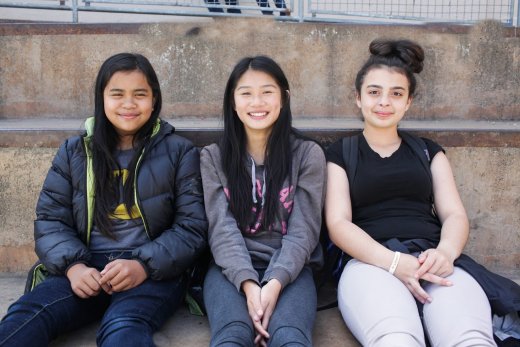
- Can seem impulsive; often talk before thinking
- Often behave best when away from home
- Need adult empathy, humor, and sensitivity to help them cope with their maturing minds and bodies
- Desire to test limits and rules is an important developmental milestone, not a personal attack on a teacher or parent
- Love the challenge of competition; prefer team sports and getting better at playing as a team
- Inclusion/exclusion issues loom large; worry more about who's "in" and who's "out" than when they were younger; may be cruel, sometimes physically aggressive
- Are sometimes moody, self-absorbed, and sensitive
Cognitive Development
-
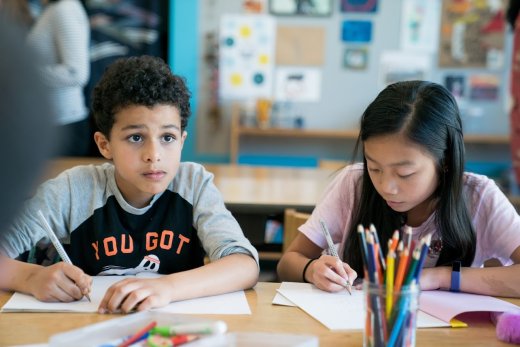
- Have trouble making decisions and are defensive about mistakes
- Becoming more adept at abstract thinking and deductive reasoning
- Enjoy the challenge of reasonably hard work
Ethics & Self Direction - Moving Toward Independence
-
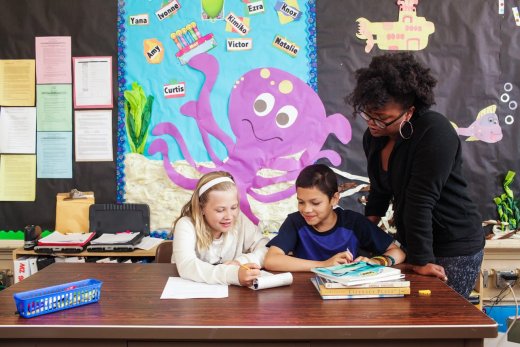
- Like to challenge rules, argue, debate, and test limits
- Class meetings, peer mediation, and cross-age tutoring can be highly effective in resolving issues
- Appreciate humor
- Imitate adult behavior
- Learn well in collaborative groups; changing the composition of these groups as needed can help adjust the social mix and address inclusion/exclusion concerns
- Self-absorbed and interested in imagining themselves in adult roles; this makes history, biography, and current events exciting
- May show interest in and facility for languages, music, or mechanics; need opportunities to explore these areas
- Interested in learning about older and very young people
- Enjoy challenging tasks, but might need help with time management and homework skills
Reading, Writing, & Across The Curriculum
Reading - Provide opportunities for children this age to:
-
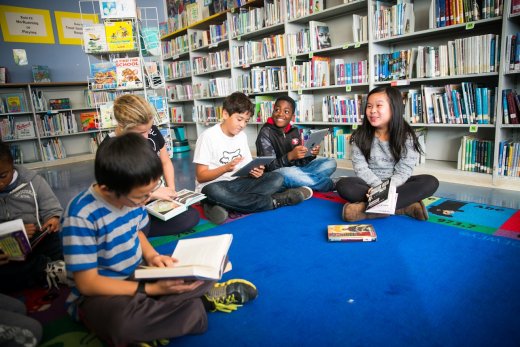
- Do more non-fiction reading tied to subjects that interest them
- Read biographies and scientific history; build timelines
- Read to children in younger grades
Writing - Expect from children this age:
- Writing: Willingness to practice, although revision can be a struggle; writing that incorporates personal interest and is more adult-like in plot, character development, and style; very rudimentary research reports; enjoy poetry writing, cartooning, and journaling
- Spelling: ease and accuracy for some, with most enjoying the challenge of spelling difficult words; readiness to learn more dictionary skills
- Writing Themes: For most, blood and gore, fantasy, science fiction, love and romance; for advanced writers, experimentation with a variety of personal compelling things
Math - Provide opportunities for students this age to:
- Solve complicated word problems
- Study probability and statistics through real-world problems; do data searches online and through newspapers and magazines
- Use calculators and computers as problem-solving tools
- Work on speed and accuracy in computations
- Work with percentages
Across the Curriculum - Provide opportunities for children this age to:
- Take quiet breaks during the day for needed physical rest, as well as a break from academics and intense social-emotional dynamics
- Argue and debate in a safe environment
- Undertake scientific study, mathematical problem-solving, and invention
- Engage in "adult" academic tasks such as conducting internet research, interviewing, footnoting, and creating a bibliography
- Establish and modify rules and develop hypotheses about cause and effect, propose and test alternative hypotheses, and use rubrics to evaluate their work
- Learn through activities such as board games, intellectual puzzles and brain teasers
Credit Link to this section
This content on development comes from Yardsticks: Child & Adolescent Development by Chip Wood and has been lightly adapted to better reflect the language usage and practices of SFUSD.
This page was last updated on November 28, 2023

